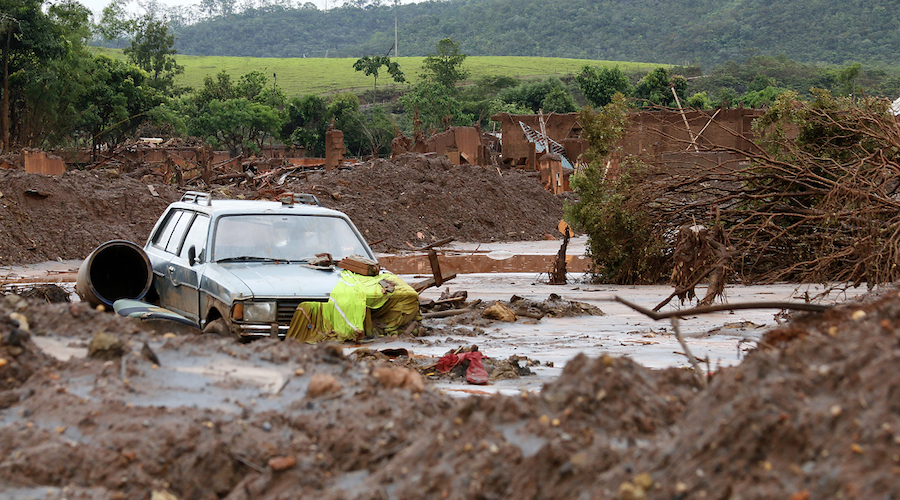Six years post fatal disaster, mines start global waste-dam body

An international institute that seeks to improve the safety of reservoirs that store toxic waste from mining known as tailings kicked off Tuesday, six years after the collapse of a dam owned by Vale SA killed 272 people in the Brazilian town of Brumadinho.
The Global Tailings Management Institute will oversee independent audits and the certification of member companies’ facilities based on their safety and public disclosures, the founders said in a statement. The International Council on Mining and Metals, the United Nations Environment Programme and the UN-backed Principles for Responsible Investment co-founded the organization that will operate from Johannesburg.
“We were very keen that the institute was based in a country that actually had both active mining operations and signatories” to the standard, ICMM co-chief operating officer Aidan Davy said in an interview. “That it was in a country that clearly had tailing facilities as well as its own regulatory structure around it. And equally a country that had expertise.”
The drive to set up the institute came after the disaster at Brumadinho, which the institute’s founders described in the statement as “a stark wake-up call.” Only four years earlier, a tailings-dam collapse at the Samarco mine in Brazil, co-owned by Vale and BHP Group Ltd., killed 19 and caused what analysts described as that country’s worst environmental disaster to date.
In 2022, a dam at the Jagersfontein diamond mine in South Africa burst, smothering almost 200 houses and killing three people.
Tailings-dam disasters across Europe, the US and Asia have killed people, destroyed property and caused massive environmental damage over the past seven decades.
“There’s a large group of investors that recognizes the importance of companies demonstrating good management of tailings facilities,” Adam Matthews, chief responsible investment officer at the Church of England Pensions Board, said in an interview. “It will be most listed companies that will be engaging with the institute. That’s our expectation.”
Matthews, who spoke on behalf of the Principles for Responsible Investment, was instrumental in the Church of England selling its stake in Vale after the Brumadinho accident.
The three founding groups convened the Global Tailings Review shortly after the Brazilian disaster and in 2020 published the Global Industry Standard on Tailings Management.
“The establishment of the institute is the next transformative step,” Davy said.
In coming months, the institute will elect a board of directors, drawing from the investment community, mining industry, labor unions, regulatory authorities, environmental experts and potentially affected groups.
It will then recruit a chief executive officer and a chief technical officer, followed by appointing and training independent auditors to evaluate and certify tailings dams.
(By Antony Sguazzin)
{{ commodity.name }}
{{ post.title }}
{{ post.date }}




Comments